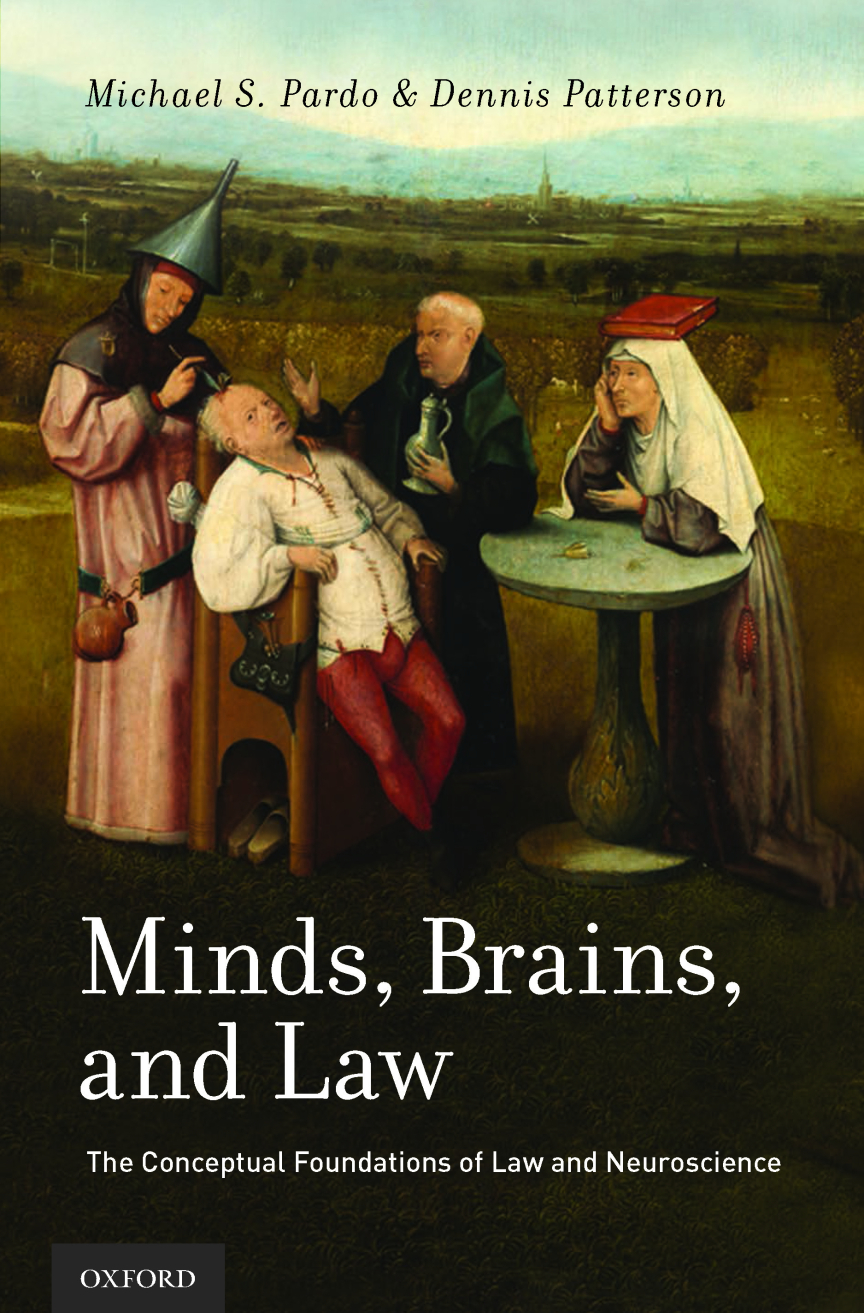
Wide-ranging predictions have been made on how new technologies in neuroscience could overhaul the legal system.
Lie detection may now capture one’s physical responses to questioning; newer tools seek to scrutinize blood flow in the brain as predictors of emotions that some researchers claim to possess the precise coordinates, including where love resides.
Dennis Patterson, a Board of Governors Professor at Rutgers Law–Camden, has published the book Mind, Brains, and Law: The Conceptual Foundations of Law and Neuroscience (Oxford, Oct. 14, 2013), with co-author Michael S. Pardo. Their innovative work represents the first monograph on the exploration of the intersection of law and neuroscience and analyzes the core questions that arise when implementing neuroscientific research and technology into the legal system. The authors examine the arguments favoring increased use of neuroscience in law, the scientific evidence available for the reliability of neuroscientific evidence in legal proceedings, and the integration of neuroscientific research into substantive legal doctrines.

Thanks to the development of new technologies like functional magnetic resonance imaging (MRI), which correlates blood flow with brain activity, electroencephalography (EEG), and other increasingly sophisticated technologies, neurolaw has become the fastest-growing interdisciplinary focus of legal, scholarly, and policy attention. Predicted by many to dominate all aspects of the legal system, neuroscience has provided new empirical data that Patterson, chair in legal philosophy and legal theory at the European University Institute, argues will, in time, offer many prospects for the law, but for now cautions on its far-reaching claims.
“There are many conceptual, legal and practical issues yet to be resolved,” notes Patterson, who teaches the course Law and Neuroscience at Rutgers Law–Camden, where he hosted an international conference on the topic last fall.
According to Patterson, the book offers a philosophical approach on the relationship between the mind and the brain and explores conceptually what it is to know something.
“To say correctly that ‘X is lying’ one first has to know the meaning of ‘lie.’ Judging the utterance of another to be a lie cannot be done correctly solely by reference to brain activity. The brain does not play a normative, regulative role: our concepts do that,” write the authors in the book’s conclusion.
They continue: “Many scholars make the claim that knowledge is ‘embedded’ in particular areas of the brain. We maintain that this way of approaching knowledge is devoid of sense. Knowledge is an ability, not a state of the brain.”
The Rutgers Law–Camden scholar suggests the fast-moving neurolaw revolution be tempered by the empirical, practical, ethical, and conceptual issues raised in the book, which took half a decade to write. “A lot of people think that you are your brain,” he adds. “There is an aspect of being human that cannot be reduced to scientific explanation. Nothing in the brain is as certain as DNA.”
Patterson is the author of Law and Truth (Oxford University Press, 1996) and The New Global Trading Order (2008, with Ari Afilalo). He is the series editor of The Oxford Introductions to U.S. Law and the general editor of The Blackwell Companion to the Philosophy of Law and Legal Theory. Published widely in jurisprudence, commercial law, trade law, and EU law, Patterson received his J.D. and Ph.D. in philosophy from the University at Buffalo.